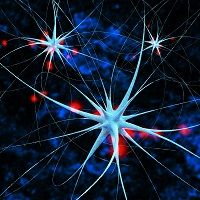Your Brain Could Be Getting Addicted to That Chronic Pain
Not only have researchers found that chronic pain remodels the region of the brain that controls emotions, but they also revealed a new combination treatment that uses drugs that are already on the market.

Not only have researchers found that chronic pain remodels the region of the brain that controls emotions, but they also revealed a new combination treatment that uses drugs that are already on the market.
The relationship between pain and the brain has always been a bit rocky. Investigators have made headway by discovering that pain shares a pathway with tinnitus, lies in the same region as empathy, and can be alleviated by simply crossing your fingers. In Nature Neuroscience, researchers from Northwestern University dived deeper into their pain findings and strategy for relief.
“The treatments for chronic pain we currently have are very limited,” lead author D. James Surmeier, PhD, said in a news release.
The rodent models study showed that a group of neurons, which are believed to control negative emotions, became hyper-excitable after an injury and connected with parts of the brain which cause a patient to feel bad after that injury. But what causes this change? The authors say that a drop in the neurotransmitter dopamine, which has been linked to pain behavior before, is responsible.
- The MD Magazine Pain Management specialty page
“The study shows you can think of chronic pain as the brain getting addicted to pain. The brain circuit that has to do with addiction has gotten involved in the pain process itself,” explained corresponding author A. Vania Apkarian, PhD. This indicates that pain is not solely sensory based and emotions should be taken into consideration; luckily, the team found a new strategy to combat it.
The treatment pairs two drugs that are already approved by the US Food and Drug Administration (FDA): the Parkinson’s drug L-dopa and a non-steroidal anti-inflammatory drug. The combination proved to completely eliminate chronic pain behavior in the brain circuits in the nucleus accumbens in animal models. The researchers are working to move the findings into a clinical trial.
“It was surprising to us that chronic pain actually rewires the part of the brain controlling whether you feel happy or sad. By understanding what was causing these changes, we were able to design a corrective therapy that worked remarkably well in the models. The question now is whether it will work in humans,” concluded Surmeier, chair and Nathan Smith Davis Professor of Physiology.
What to Read Next >>> Alcohol Consumption May Predict Disability from Chronic Pain